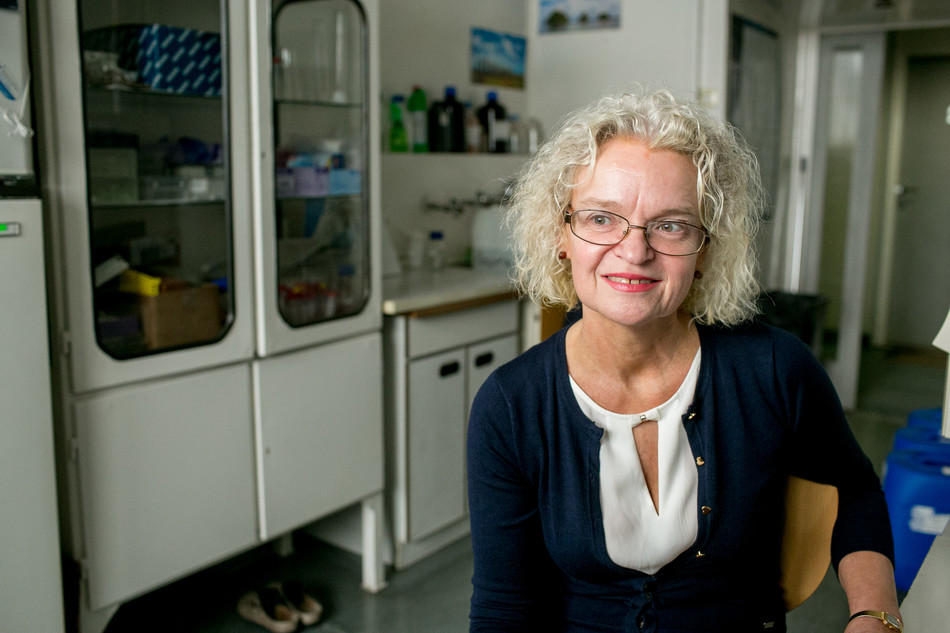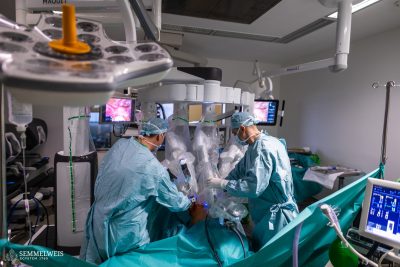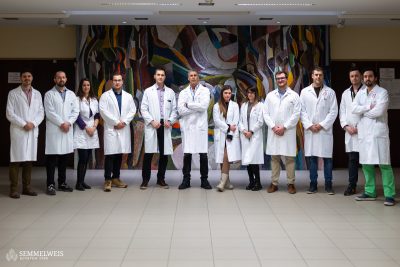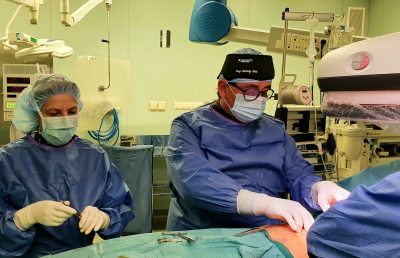The collaborative research group of the University of Pécs and Semmelweis University identified a marker that is responsible for the success of artificial fertilisation and published the finding in the journal Nature Scientific Reports.
 Dr. Éva Pállinger, associate professor of the Department of Genetics, Cell and Immunobiology got involved in the research on the invitation of Dr. Júlia Szekeres-Barthó, professor of the Department of Medical Biology at the University of Pécs, who is an internationally renowned expert of the immunology of pregnancy. The primary objective of the research was to identify the presence of extracellular vesicles in the cell culture of artificially fertilised embryos.
Dr. Éva Pállinger, associate professor of the Department of Genetics, Cell and Immunobiology got involved in the research on the invitation of Dr. Júlia Szekeres-Barthó, professor of the Department of Medical Biology at the University of Pécs, who is an internationally renowned expert of the immunology of pregnancy. The primary objective of the research was to identify the presence of extracellular vesicles in the cell culture of artificially fertilised embryos.
“Our department was chosen to participate in the research because the Extracellular vesicles research group, lead by Dr. Edit Buzás, Director have reached internationally recognised results in the standardisation of the identification methodology of vesicles. I personally have been doing research on the role of extracellular vesicles in human reproduction for a decade. Thus, the idea of a research cooperation seemed rational.”, Dr. Pállinger said.
Currently embryos to be implanted are chosen based on their morphological features, but it has been proven that a morphologically suitable embryo is not necessarily adequate at the same time. The research group have developed a non-invasive, quick, inexpensive flow cytometry evaluation method that increases the chance to identify viable embryos right before implantation. As a result of a comparative study of clinical data, correlation between the number of vesicles containing nucleic acid and the success rate of artificial fertilisation was found. The cell culture of successfully implanting embryos had a significantly lower number of extracellular vesicles containing nucleic acid than that of embryos unable to implant. This provides an opportunity to select the most suitable embryo from the embryo culture right before implantation.
“The research is a real success story. First of all, it took only a few moths to obtain the results and to file the patent application. Second, the study of extracellular vesicles is an extremely complicated task, especially if the number of vesicles present in the biological sample is low.”, Dr. Éva Pállinger explained.
These success stories are important for the researchers as they give a positive feedback indicating that they are on the right track.
“I am a physician, therefore our success of finding something that helps patients and has clinical relevance means a lot to me.”, she said.
Szilvia Tóth-Szabó
Photo: Attila Kovács – Semmelweis University
Translation: Ágnes Raubinek


